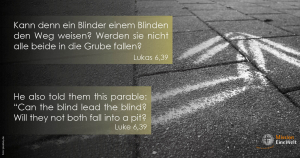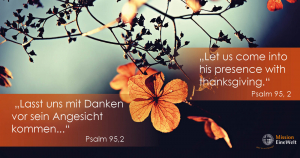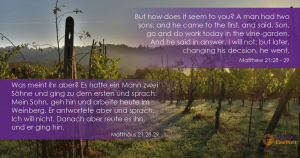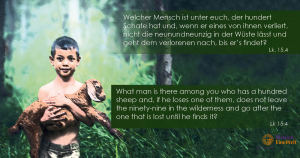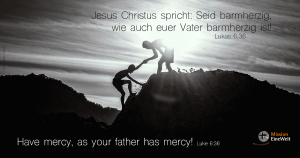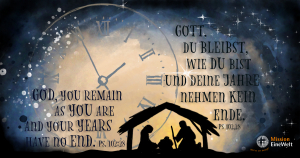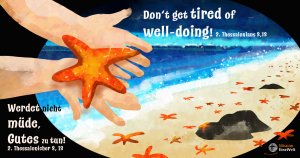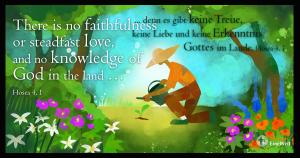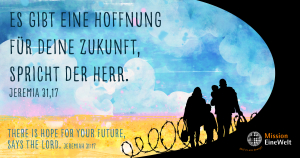Kann denn ein Blinder einem Blinden den Weg weisen? Werden sie nicht alle beide in die Grube fallen? Lukas 6,39
Kennen Sie das, „blind“ zu sein? – Rein physisch, also Schwierigkeiten beim Sehen zu haben, verschwommen oder gar nichts zu sehen, im Dunkeln zu tappen? – Oder mehr kognitiv, psychisch, emotional, sich nicht auszukennen, sich verloren zu fühlen, keine Orientierung zu haben, nicht zu wissen wohin?
Wie gut ist es in solchen Situationen, jemanden zu haben, der einem weiterhilft, die Richtung weist, einem Orientierung gibt. Aber Jesus warnt hier im Lukasevangelium auch davor, falschen Wegweisenden oder Führer*innen hinterherzulaufen. Nur weil jemand meint, den Weg zu wissen, muss dieser noch lang nicht richtig sein, sondern kann auch in die Irre führen und sich als verhängnisvoll erweisen.
Jesus betont hier, dass es eher um eine gemeinsame Suche, um ein Miteinander-auf-dem-Weg-Sein gehen sollte und nicht darum, dass alle einem*einer blindlings folgen.
Für die gemeinsame Suche nach dem richtigen Weg hat Gott uns das Doppelgebot der Liebe als Richtschnur zur Orientierung gegeben. „Du sollst Gott lieben und deinen Nächsten wie dich selbst.“ Respekt und Ehrfurcht vor Gott, unserem Schöpfer, Respekt vor der Würde unserer Mitmenschen und Mitgeschöpfe: Wenn wir unser Leben danach ausrichten und uns in diesem Sinne gemeinsam auf den Weg machen, dann, so die biblische Verheißung, wird dieser Weg nicht in die Irre führen, sondern zu einem guten Leben für alle Menschen im Einklang mit der Natur, Gottes Schöpfung.
Amen.
Andacht: Gisela Voltz, Referat Entwicklung und Politik, Mission EineWelt
Illustration: Heike Halbmann, Öffentlichkeitsarbeit, MissionEineWelt
He also told them this parable: “Can the blind lead the blind? Will they not both fall into a pit? Luke 6:39
Do you know what it is like to be „blind“? – Purely physical, that is, having trouble seeing, seeing blurry or nothing at all, being in the dark? – Or more cognitive, psychological, emotional, not knowing your way around, feeling lost, having no direction, not knowing where to go?
How good it is in such situations to have someone to help you along, to point you in the right direction, to give you orientation. But Jesus also warns here in Luke’s gospel not to run after false guides or leaders. Just if someone thinks he knows the way that does not necessarily mean it is the right way; it can also lead into error and prove itself as disastrous.
Jesus emphasizes here that it should rather be about a common search, about being together on the way and not that all follow one blindly.
For our common search for the right path, God has given us the double commandment of love as a guideline for orientation. „You shall love God and your neighbor as yourself.” Respect and reverence for God, our Creator, respect for the dignity of our fellow human beings and fellow creatures. If we orient our lives according to this and set out together in this sense, then, according to the biblical promise, this path will not lead us astray, but to a good life for all human beings in harmony with nature, God’s creation.
Amen.
Prayer: Gisela Voltz
Illustration: Heike Halbmann

